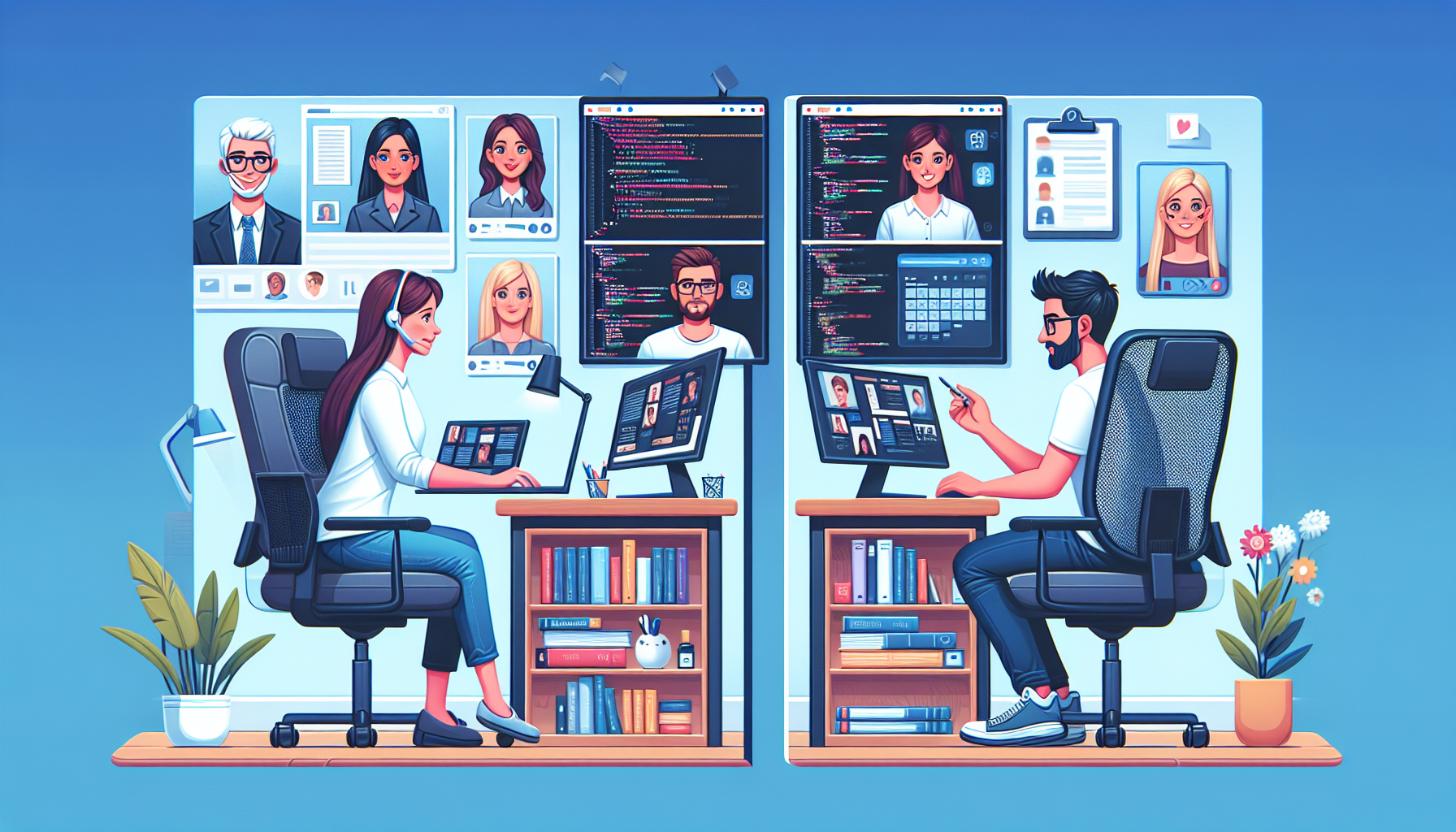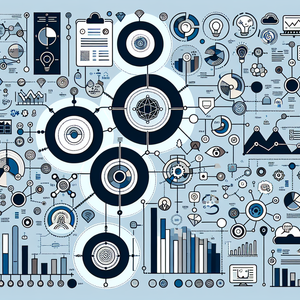The Intersection of Psychology and Technology: New Frontiers in Mental Health

Artificial intelligence is revolutionizing the way psychologists diagnose and treat mental health conditions. AI algorithms can analyze vast amounts of data, identifying patterns that human practitioners might overlook. For instance, predictive analytics can help in early detection of mental health issues by analyzing social media posts, online behavior, and even biometric data. According to a study published in the journal *Nature*, AI tools have demonstrated a high degree of accuracy in predicting the onset of conditions like depression and anxiety based on digital footprints. Additionally, AI-powered chatbots are emerging as tools for providing immediate support. These virtual assistants can offer cognitive behavioral therapy (CBT) techniques and support for individuals who may be hesitant to seek traditional therapy. A notable example is Woebot, a mental health chatbot that uses AI to provide users with personalized support and strategies for managing their emotional well-being. The integration of AI in psychological practice not only enhances accessibility but also allows professionals to focus on more complex cases that require human empathy and understanding.
Virtual Reality: Immersive Therapy for Phobias and PTSD
Virtual reality is another groundbreaking technology that is transforming psychological treatment. By creating immersive environments, VR therapy allows patients to confront their fears in a controlled and safe setting. For example, individuals with a fear of heights can experience virtual heights, gradually desensitizing them to their phobia. Research published in the journal *Journal of Anxiety Disorders* has shown that VR exposure therapy can significantly reduce anxiety levels in patients with specific phobias. Furthermore, VR has shown promise in treating post-traumatic stress disorder (PTSD). Veterans and survivors of trauma can engage in exposure therapy through simulated scenarios, enabling them to process their experiences while receiving support from trained professionals. The efficacy of VR therapy in creating lasting change highlights the potential for technology to enhance traditional therapeutic methods, as evidenced by studies indicating significant symptom reduction among participants after VR therapy sessions.
Mobile Applications: Mental Health at Our Fingertips
The rise of mobile applications has democratized access to mental health resources. Apps designed for mindfulness, mood tracking, and cognitive behavioral techniques empower users to take charge of their mental well-being. Popular applications like Headspace and Moodfit offer guided meditations, mood logging, and interactive journaling prompts, making psychological tools readily available anytime and anywhere. Moreover, mobile apps can facilitate remote therapy sessions, breaking geographical barriers and allowing psychologists to reach clients in underserved areas. A survey conducted by the American Psychological Association revealed that over 60% of psychologists reported using teletherapy during the COVID-19 pandemic, a trend that is likely to continue. This shift towards digital platforms signifies a major evolution in how psychological services are delivered, making mental health care more inclusive and accessible.
User Experience Research: Bridging Psychology and Design
As technology continues to advance, the role of psychologists in user experience (UX) research is becoming increasingly important. Psychologists bring valuable insights into human behavior, which can inform design processes for technology products. By understanding cognitive load, emotional responses, and user motivation, psychologists can contribute to creating more engaging and effective digital experiences. For instance, UX researchers with a psychological background can help develop applications that cater to users' mental health needs, ensuring that the design is user-friendly and promotes positive interactions. A case study involving a mental health app redesign highlighted that incorporating psychologist insights into UX design led to a 40% increase in user engagement and satisfaction. This collaboration between psychology and technology not only enhances product effectiveness but also prioritizes user well-being.
The intersection of psychology and technology is an exciting and rapidly evolving field that holds immense promise for both mental health professionals and those seeking support. From AI-driven diagnostic tools to immersive virtual reality experiences and accessible mobile applications, technology is reshaping how we understand and approach mental health care. As psychologists embrace these advancements, they not only enhance their professional practice but also contribute to a more informed and supportive society. The future of psychology is bright, and technology is paving the way for innovative solutions that can improve lives and foster mental well-being in an increasingly complex world. In conclusion, as new technologies emerge and evolve, the potential for psychology to adapt and harness these tools will likely lead to improved outcomes for individuals grappling with mental health issues, ultimately transforming the landscape of mental health care for the better.
AI Mental Health Solutions Developer
Tech startups focusing on mental health solutions, healthcare technology companies, and research institutions
Core Responsibilities
Design and implement AI algorithms for analyzing mental health data and predicting conditions.
Collaborate with psychologists to refine AI tools for therapeutic applications, such as chatbots and predictive analytics.
Conduct user testing to ensure the effectiveness and reliability of AI solutions.
Required Skills
Strong programming skills in languages such as Python or R, with experience in machine learning frameworks.
Understanding of psychological principles and mental health terminology.
Experience in data analysis and familiarity with large datasets.
Virtual Reality Exposure Therapist
Mental health clinics, rehabilitation centers, and hospitals utilizing innovative therapeutic modalities
Core Responsibilities
Administer VR therapy sessions to patients with phobias, PTSD, and anxiety disorders.
Customize VR scenarios to suit individual patient needs, ensuring a safe therapeutic environment.
Monitor and evaluate patient progress during and after VR exposure therapy.
Required Skills
Licensed therapist with specialized training in VR therapeutic techniques.
Strong understanding of trauma-informed care and best practices in exposure therapy.
Proficiency in operating VR equipment and software.
Mobile Health App Psychologist
Health tech companies, mobile app developers, and non-profit organizations focused on mental health
Core Responsibilities
Collaborate with app developers to create evidence-based mental health resources and tools.
Conduct user research to understand user needs and evaluate app effectiveness.
Provide expert insights on user engagement strategies and content development.
Required Skills
Advanced degree in psychology with experience in digital health or app development.
Strong analytical skills to assess user data and feedback.
Familiarity with mobile app design principles and user experience (UX) research methods.
User Experience (UX) Researcher specializing in Mental Health
Tech companies developing mental health products, UX design agencies, and academic research institutions
Core Responsibilities
Conduct qualitative and quantitative research to understand how users interact with mental health technologies.
Analyze user behavior and emotional responses to inform the design of mental health applications.
Collaborate with cross-functional teams, including designers and developers, to improve product usability.
Required Skills
Background in psychology with expertise in user experience research methodologies.
Proficiency in using research tools and software for data collection and analysis.
Strong communication skills to translate research findings into actionable design recommendations.
Digital Mental Health Program Coordinator
Non-profit organizations, healthcare systems, and government mental health programs
Core Responsibilities
Oversee the implementation and management of digital mental health programs and initiatives.
Coordinate training for mental health professionals on using digital tools and resources effectively.
Evaluate program success through data analysis and user feedback, making necessary adjustments.
Required Skills
Strong organizational and project management skills, with experience in mental health settings.
Understanding of digital health technologies and their application in therapy.
Ability to engage with diverse stakeholders, including tech developers and mental health practitioners.


